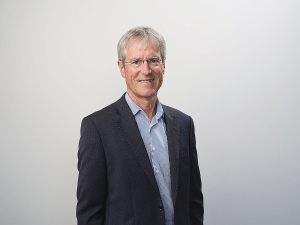Alliance Group returns to profit after two years with $93m turnaround
After two years, Alliance Group has returned to profit.
 Alliance board chair Mark Wynne admits that farmers are hurting and it was not a good time for a capital raise.
Alliance board chair Mark Wynne admits that farmers are hurting and it was not a good time for a capital raise.
The Alliance Group probably won’t know until mid-way through next season how successful it is in seeking a capital injection from supplying farmers to maintain its 100% farmer-owned co-operative status.
The company’s board last month announced its need to raise somewhere between $100 million and $150 million, saying it had approved an increase in the number of shares required to be held, from 12 to 16 per stock unit killed – an increase of $4 per head deduction per stock unit.
Since then, the company has been selling the scheme to farmers, in a series of in-person meetings and online Q&As. Livestock reps have also been taking to farmers directly.
Board chair Mark Wynne said farmers are hurting and it was not a good time for a capital raise.
“The timing sucks,” he admitted.
The meetings have so far reached “a few hundred” of some 5000 shareholders.
Speaking to Rural News from Beijing where he was on an in-market visit, Wynne said farmers at the meetings wanted to know ‘how did we get here and what’s going to be different going forward’.
His impression was that about 80% appear to agree to support the co-operative, while 20% “want to go away and have a bit of a think.”
How well farmer shareholders respond remains to be seen.
“We won’t really see the effect of that until probably the middle of next season because this season is largely done,” he said.
Those who don’t support the plan “will send their signal by shifting stock to alternative processors.”
Meanwhile, Alliance emphasises that the money won’t all come from farmers.
Wynne said the co-operative has already made about 150 redundancies, a few from the plants but the vast majority from head office.
It had also reduced working capital through minimising inventory, accelerating payments from customers offshore, cutting costs and reducing capital expenditure.
Wynne, who took over the chair when Murray Taggart retired in April, said the co-operative’s situation wasn’t “new news.”
“If you look at it from a shareholders equity point of view and look back to 2017 we had about 70% shareholders’ equity.
“Particularly in light of our big loss last year, that declined to 48%.
“We obviously want to build that back up, because a strong balance sheet gives you resilience as a company and it keeps all options open.”
As communicated to farmers at the AGM and associated roadshow in December, the co-operative’s bankers had already indicated a need to address the balance sheet, said Wynne.
What then “pushed it along a bit” was that in January they had to notify the bankers that one of its covenants was likely to be breached in February due to abnormal weather patterns’ impact on stock supply.
“So obviously that was renegotiated and away we go.”
They had moved quickly since then, he says.
One of New Zealand’s longest-running pasture growth monitoring projects will continue, even as its long-time champion steps away after more than five decades of involvement.
The Insurance & Financial Services Ombudsmen Scheme (IFSO Scheme) is advising consumers to prepare for delays as insurers respond to a high volume of claims following this week's severe weather.
Additional reductions to costs for forest owners in the Emissions Trading Scheme Registry (ETS) have been announced by the Government.
Animal welfare is of paramount importance to New Zealand's dairy industry, with consumers increasingly interested in how food is produced, not just the quality of the final product.
Agriculture and Forestry Minister Todd McClay is encouraging farmers and growers to stay up to date with weather warnings and seek support should they need it.
The closure of SH2 Waioweka Gorge could result in significant delays and additional costs for freight customers around the Upper North Island, says Transporting New Zealand.